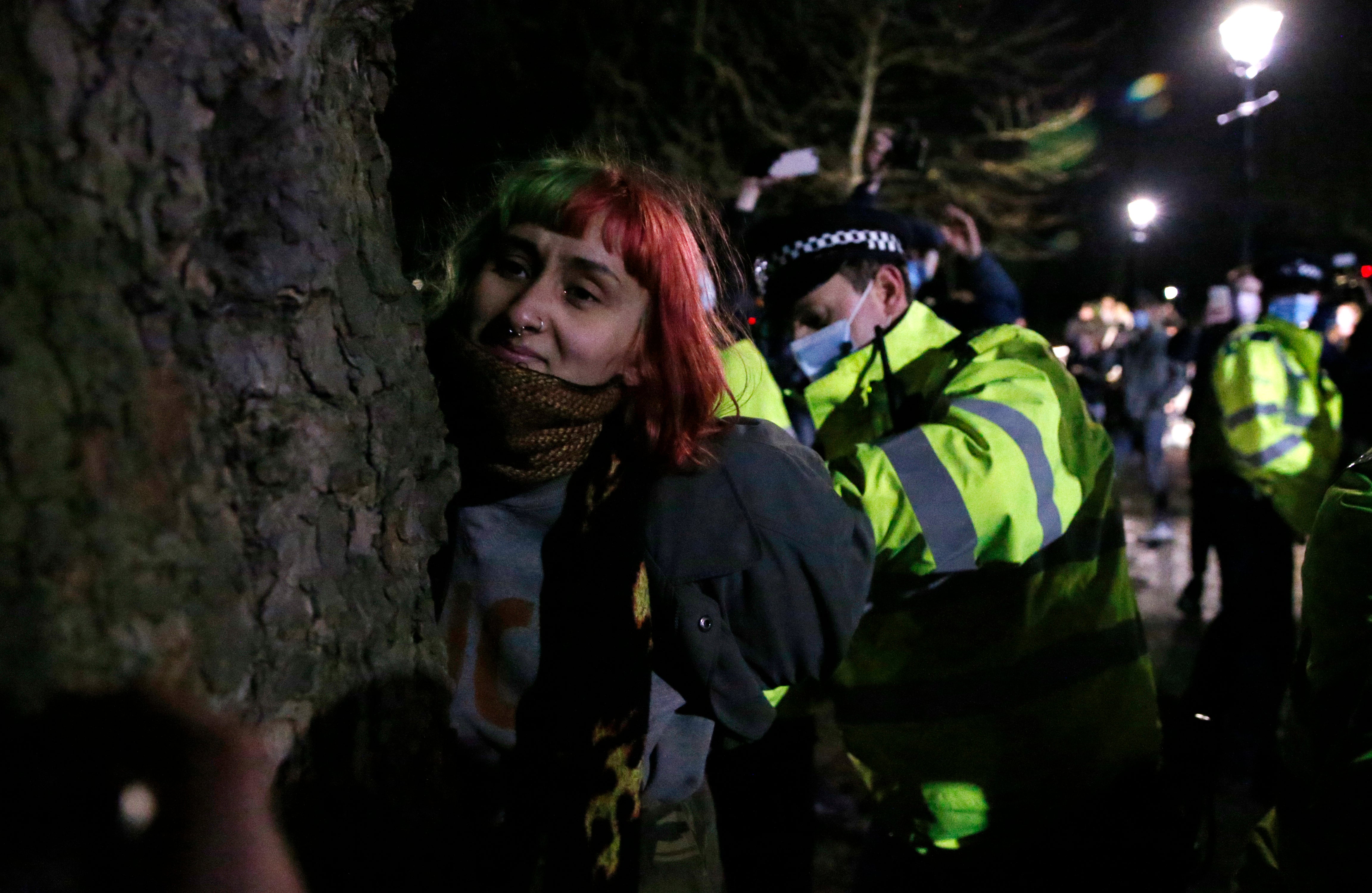Met Police officers investigated for looking up details of Sarah Everard murder without clearance
Possible breach of conduct is considered a criminal offence in some cases

Your support helps us to tell the story
From reproductive rights to climate change to Big Tech, The Independent is on the ground when the story is developing. Whether it's investigating the financials of Elon Musk's pro-Trump PAC or producing our latest documentary, 'The A Word', which shines a light on the American women fighting for reproductive rights, we know how important it is to parse out the facts from the messaging.
At such a critical moment in US history, we need reporters on the ground. Your donation allows us to keep sending journalists to speak to both sides of the story.
The Independent is trusted by Americans across the entire political spectrum. And unlike many other quality news outlets, we choose not to lock Americans out of our reporting and analysis with paywalls. We believe quality journalism should be available to everyone, paid for by those who can afford it.
Your support makes all the difference.A number of Met Police officers and civilian staff members are being investigated for looking up details of the investigation into Sarah Everard’s murder, potentially without authorisation.
It is claimed dozens accessed records pertaining to Everard’s abduction and murder – for which police constable Wayne Couzens was charged in March – on internal computers but might not have been cleared to do so, which in some cases is a criminal offence.
A probe has been launched by the Met’s Directorate of Professional Standards as a result, in order to judge whether “each access was for a legitimate policing purpose,” according to a spokesman for the force.
When approached by The Independent, the spokesman said while officers and staff require “access to computer records as part of their role, they are only permitted to view specific records and data when there is a legitimate policing purpose for doing so”.
“Accessing records without such a purpose can amount to a breach of professional standards or, in some cases, a criminal offence,” he said.
He continued: “Officers from the Met’s Directorate of Professional Standards are in the process of contacting officers and staff who accessed records relating to [the Sarah Everard] investigation … to ensure that each access was for a legitimate policing purpose.”
A decision on whether further action is required – which could be anything from disciplinary action to charging those involved – will be made once all the responses have been received.
Various reports in the media have suggested 35 people are under investigation, but the Met has not officially confirmed this information so far.
Everard, a 33-year-old marketing executive, was abducted and killed on her way home from Clapham to Brixton, in southwest London, on the evening of 3 March.
Her death sparked a nationwide outpouring of anger and emotion from both men and women who said they were tired of women being violated, and pleaded with the government to step up its action on “violence against women”.
A vigil held in Everard’s memory was overtaken with violence when dozens of officers moved in on Clapham Common’s bandstand to forcibly break up the large crowd, in what they later said was an attempt to minimise the risk of coronavirus spreading.

It led to a mass demonstration outside Scotland Yard, in Central London, the following day where thousands of attendees fought for their right to protest.
Last week Commissioner Cressida Dick claimed she had considered an all-female squad to police the vigil, due to the “sensitivities” of Everard’s death, but this did not materialise.
Britain’s most senior police officer faced calls to resign after images of officers manhandling women, and in some cases pinning them to the ground, at the 13 March vigil went viral. It sparked outrage from civilians, celebrities and MPs across the UK.
A government review into the vigil’s policing was later commissioned, by Boris Johnson and home secretary Priti Patel, but defended officers who it said were justified in using excessive force.
Matt Parr, the lead inspector for the report, told The Guardian at the time that despite over half his team being former officers the inquiry was rigorous and fair. He said of the Met’s controversial use of force: “They were absolutely right, they did not have a choice.”
Met Police officer Mr Couzens, 48, is charged with abducting and murdering Everard and faces trial in October.